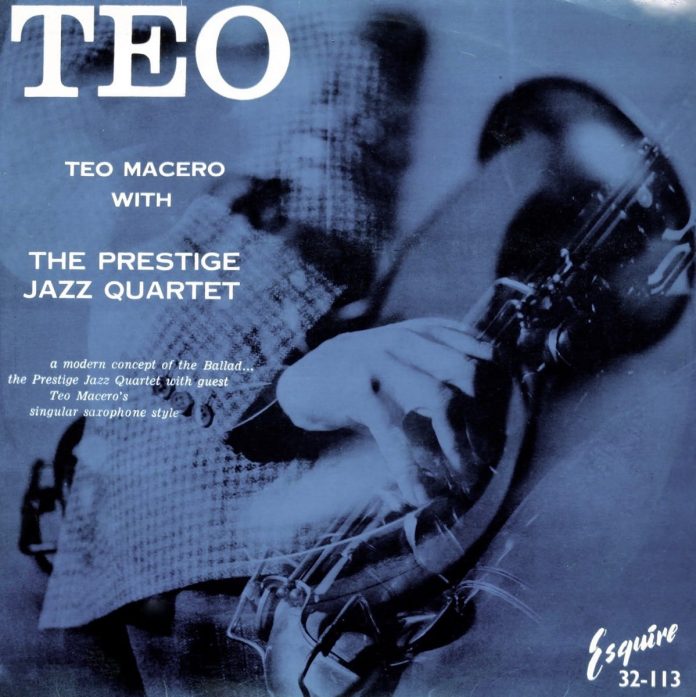This album, subtitled “A Modern Concept Of The Ballad”, contains some of the most stimulating saxophone playing I have heard in a long time. Both Macero and Teddy Charles were considered a few years ago to be amongst the “avant-garde” of modern jazz. Unfortunately, neither seems to be playing much nowadays, and Macero now has a job supervising jazz dates for American Columbia.
All but one of the five tracks are slow. “Ghost Story” is the exception, and it is a tribute to the five men that there isn’t a single dull moment on the record. Macero, with a tone rather like Getz’s and a predilection for the upper register of his instrument, is an almost totally original musician, which is a refreshing change from the carbon copies of Rollins and Coltrane one hears most of the time nowadays.
The Prestige Jazz Ouartet (Charles, Waldron, Farmer and Segal), were purely a studio group, but there is a remarkable degree of sympathy between them and their guest. Teddy Charles is also a completely original musician, who has been grossly under-rated for years, especially in this country. Mal Waldron plays better than I ever remember hearing him on record.
To end on a mildly sour note, Esquire, like Philips, are still not using proner polythene inners – if other companies can use them, why not Philips and Esquire?
Discography
Ghost Story; Please Don’t Go Now; Just Spring (17½ min.) – Star Eyes; Polody; What’s Not (19½ min.)
Teo Macero (ten); Teddy Charles (vb); Mal Waldron (p); Addison Farmer (bs): Jerry Segal (d). Hackensack. N.J.. 27 April, 1957.
(Esquire 31-113. 12inLP. 37s. 9½d.)
















